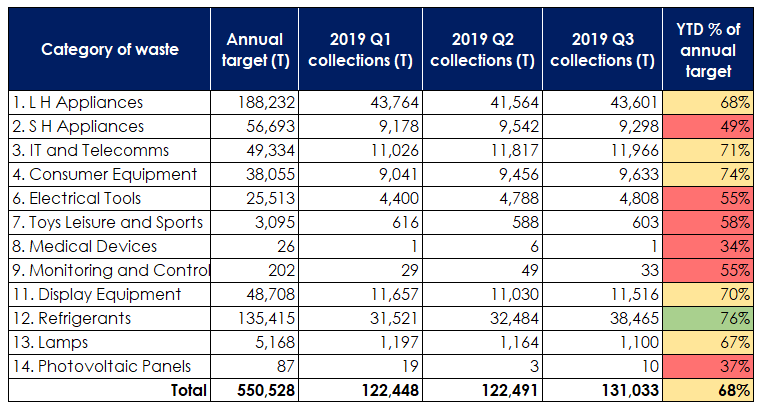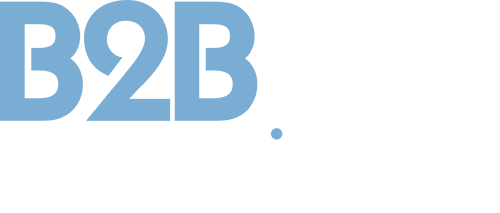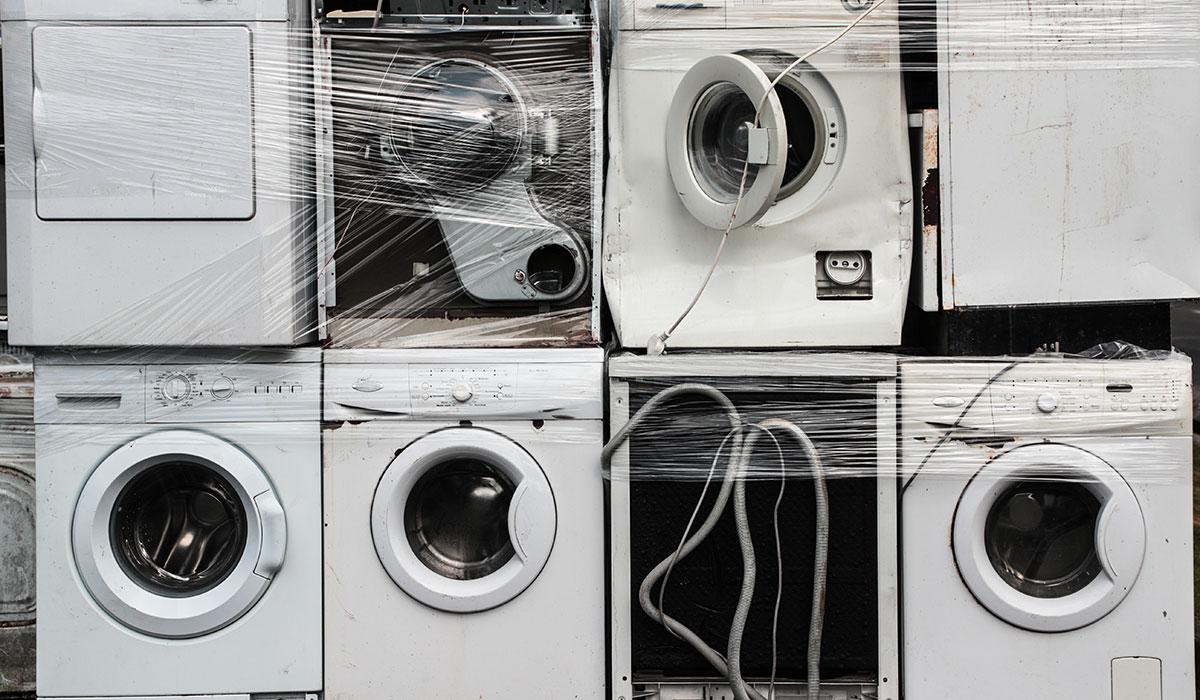The annual target looks set to be missed yet again for the third year in a row, according the Q3 2019 WEEE collection figures released by the Environment Agency.
To meet the collection targets in 2019 an increase in collections of 12% is required, compared to the amount actually collected in 2018, and it is already clear we are struggling to achieve this. Small Mixed WEEE (categories 2-10) is particularly poorly performing and is far from the 75% level we should be achieving by Q3.

Why are the collections results so poor again? The reasons are many and could include fewer recycling opportunities for consumers compared to other materials, poor public awareness of the issue and the difficulty of fully understanding the flow of EEE through to WEEE when setting the collection targets.
The WEEE Compliance Fee
WEEE compliance schemes are required to purchase enough recycling evidence to meet their members obligations, but when the targets are missed the shortfall in evidence means that schemes are forced to rely on the WEEE Compliance Fee, a mechanism that provides an alternative means of compliance, albeit a more expensive one.
The funds raised via the compliance fee are administered by the WEEE Fund who ensure it is used to improve WEEE collections and recycling, including technical research, behaviour change campaigns and local projects.
Through the 2017-18 compliance period the Compliance Fee mechanism raised over £10.6million, indicative of the amount that it is relied upon by schemes as the UK struggles to collect enough WEEE. The exact mechanism for the 2019 Compliance Fee is currently being consulted on.
Making WEEE collections easy for B2B Compliance members
B2B Compliance operates a UK-wide WEEE collection service to help our members easily contribute to WEEE recycling, from a one-off collection to regular take-back requirements. Visit our collections page for more information and to book a collection.
If you have any questions about the WEEE collections figures please do contact our team.


